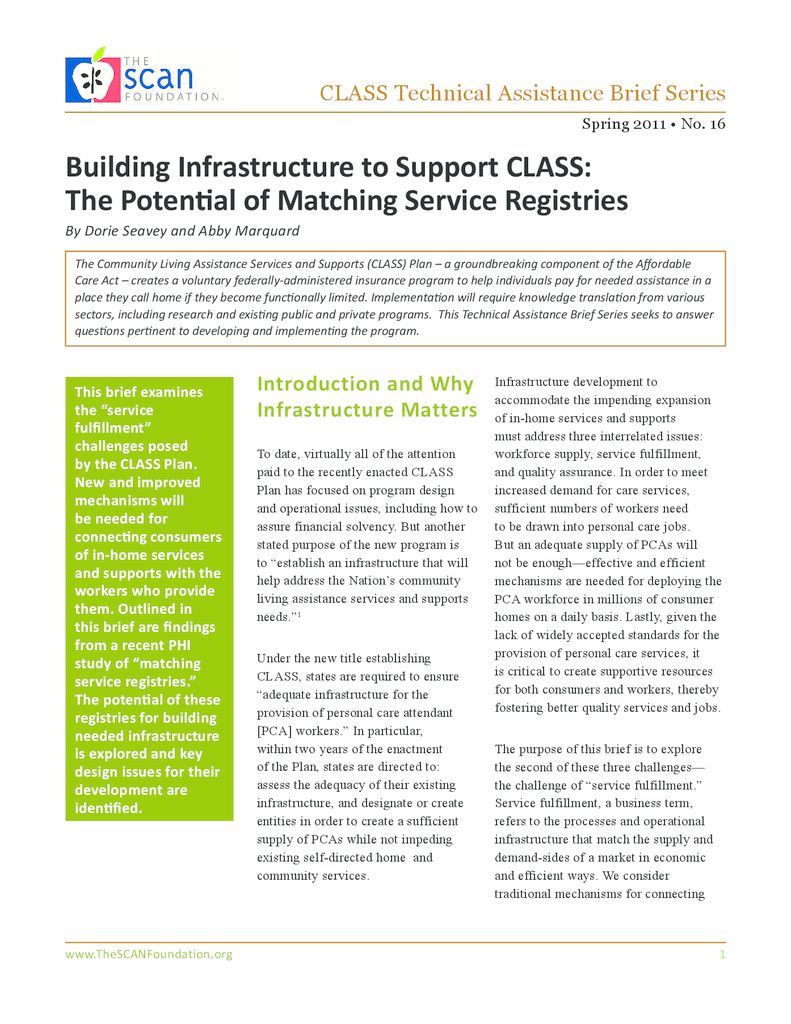Building Infrastructure to Support CLASS: The Potential of Matching Service Registries
To date, virtually all of the attention paid to the recently enacted CLASS Plan has focused on program design and operational issues, including how to assure financial solvency. But another stated purpose of the new program is to “establish an infrastructure that will help address the nation’s community living assistance services and supports needs. Under the new title establishing CLASS, states are required to ensure “adequate infrastructure for the provision of personal care attendant [PCA] workers.”…
Download the publication for all visuals and complete references.
Continue Reading
This policy brief provides an introduction to The SCAN Foundation’s CLASS Technical Assistance Brief Series, which explores many of the critical issues to be considered for successfully implementing CLASS.
This policy brief describes the broad needs of individuals with disability and the wide range of supportive and environmental solutions that can allow for the most independent living possible. It suggests how findings on social and environmental supports for individuals with disability can inform implementation of CLASS.
This policy brief provides background on the historical development of benefit eligibility triggers in the private long-term care insurance market. Understanding how these triggers came into being can provide important information to those charged with implementing the CLASS Plan.


